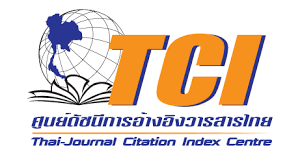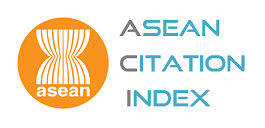Impacts of COVID-19 Pandemic on Informal Workers in Thailand
- Kaewkwan Tangtipongkul, Faculty of Economics, Thammasat University, Bangkok 10200, Thailand, *Corresponding author, E-mail: kaewkwan@econ.tu.ac.th
Abstract
The impact of the COVID-19 pandemic outbreak in Thailand has negatively affected the promotion of continuous economic growth and productive employment. This study uses data from the Thai National Statistical Office’s Informal Worker Survey 2011-2021 from households sampling in Thailand. This study's early analysis used annual data from 2011-2021 to reflect changes related to the labor market, occupations, economic activities, and number of employments. The results of the study are shown by using diagrams to illustrate trends and changes over 10 years. In addition, the study provided an analysis of COVID-19’s impact on the labor market in Thailand by the mean differences between before the COVID-19 (2019) and during the COVID-19 pandemic (2020 and 2021) on estimated monthly income and total weekly working hours of the sample group by gender, educational level, occupation, and type of industry. The Thai National Statistical Office defines informal employment as employed persons with no social security from their employers. According to the annual data from 2011-2021, it was found that the number of informal employments in Thailand from the age of 15 to 55 years has decreased continuously during the COVID-19 pandemic outbreak in 2020 and 2021. The average weekly working hours for female and male informal workers decreased significantly statistically during the COVID-19 pandemic compared to pre-COVID-19. The average monthly earnings for male informal workers decreased significantly statistically during the COVID-19 pandemic compared to pre-COVID-19, while the average monthly earnings for female informal workers remained statistically insignificant. The average monthly earnings and average total weekly working hours of informal workers in all educational levels during the COVID-19 pandemic declined statistically significantly, except for informal workers with a secondary education level and above where only the average weekly working hour declined statistically significantly. In addition, the average weekly working hours for all occupations decreased significantly statistically during the COVID-19 pandemic. Agriculture, forestry, fisheries, construction, and service occupations experienced a statistically significant decline in average monthly earnings during the COVID-19 pandemic. Utilizing various financial assistance measures to alleviate the issues of the informal labor market and the economic situation affected by the COVID-19 pandemic may be the path to economic recovery.
Keywords: COVID-19, informal labor market, employment, earnings, working hours, Thailand
DOI: 10.14456/jcsh.2024.1
References
Alon, T., Doepke, M., Rumsey, J., & Tetilt, M. (2020). The impact of COVID-19 on gender equality (NBER Working Papers No. 26947). Cambridge, UK: National Bureau of Economic Research. https://doi.org/10.3386/w26947
Aum, S., Lee, S. Y. T., & Shin, Y. (2021). COVID-19 doesn’t need lockdowns to destroy jobs: The effect of local outbreaks in Korea. Labour Economics, 70, Article 101993. https://doi.org/10.1016/j.labeco.2021.101993
Bartik, A.W., Bertrand, M., Lin, F., Rothstein, J., & Unrath, M. (2020). Measuring the labor market at the onset of the COVID-19 crisis (NBER Working Papers No. 27613). Cambridge, UK: National Bureau of Economic Research. https://doi.org/10.3386/w27613
Béland, L. P., Brodeur, A., & Wright, T. (2023). The short-term economic consequences of Covid-19: exposure to disease, remote work and government response. Plos One, 18(3), Article e0270341. https://doi.org/10.1371/journal.pone.0270341
Center for Assistance for Tsunami Victims. (2005). Tsunami Victims Assistance Report. Thailand Department of Employment, Ministry of Labour. Retrieved from http://lib.doe.go.th/ebookdoc/020400003207_0.pdf
Chetty, R., Friedman, J. N., & Stepner, M. (2024). The economic impacts of COVID-19: Evidence from a new public database built using private sector data. The Quarterly Journal of Economics, 139(2), 829-889. https://doi.org/10.1093/qje/qjad048
Coibion, O., Gorodnichenko, Y., & Weber, M. (2020). Labor markets during the COVID-19 crisis: A preliminary view (NBER Working Papers No. 27017). Cambridge, UK: National Bureau of Economic Research. https://doi.org/10.3386/w27017
Crossley, T. F., Fisher, P. & Low, H. (2021). The heterogeneous and regressive consequences of COVID-19: Evidence from high quality panel data. Journal of Public Economics, 193, Article 104334. https://doi.org/10.1016/j.jpubeco.2020.104334
del Rio-Chanona, R. M., Mealy, P., Pichler, A., Lafond, F., & Farmer, J. D. (2020). Supply and demand shocks in the COVID-19 pandemic: An industry and occupation perspective. Oxford Review of Economic Policy, 36(Supplement_1), S94-S137. https://doi.org/10.1093/oxrep/graa033
Genoni, M. E., Khan, A. I., Krishnan, N., Palaniswamy, N., & Raza, W. (2020). Losing livelihoods: The labor market impacts of COVID-19 in Bangladesh (Working Papers No. 152986). Retrieved from http://hdl.handle.net/10986/34449
Guven, C., Sotirakopoulos, P., & Ulker, A. (2020). Short-term labour market effects of COVID-19 and the Associated National Lockdown in Australia: Evidence from longitudinal labour force survey (No. 635). GLO Discussion Paper. Retrieved from https://www.econstor.eu/handle/10419/223013
International Labour Organization (ILO). (2020a). COVID-19 Employment and labour market impact in Thailand [Briefing note]. Retrieved from http://www.ilo.org/asia/publications/labour-markets/WCMS_747944/lang--en/index.htm
International Labour Organization (ILO). (2020b). Impact assessment of COVID-19 on employment and labour market in Thailand [Briefing note]. Retrieved from https://thailand.un.org/sites/default/files/2020-06/ILO%20COVID19%20impact%20assessment%20Thailand%20report%20-%20UN%20Thailand%20logo.pdf
Juranek, S., Paetzold, J., Winner, H., & Zoutman, F. (2020). Labor market effects of COVID-19 in Sweden and its neighbors: Evidence from novel administrative data. NHH Dept. of Business and Management Science Discussion Paper, (2020/8). Retrieved from https://papers.ssrn.com/sol3/papers.cfm?abstract_id=3660832
Forsythe, E., Kahn, L. B., Lange, F., & Wiczer, D. (2020). Labor demand in the time of COVID-19: Evidence from vacancy postings and UI claims. Journal of Public Economics, 189, Article 104238. https://doi.org/10.1016/j.jpubeco.2020.104238
Kahn, B.L., Lange, F., & Wiczer, G.D. (2020). Labor Demand in the Time of Covid-19: Evidence from Vacancy Postings and UI Claims. NBER Working Papers, 27061. http://doi.org/10.3386/w27061
Kikuchi, S., Kitao, S., & Mikoshiba, M. (2021). Who suffers from the COVID-19 shocks? Labor market heterogeneity and welfare consequences in Japan. Journal of the Japanese and International Economies, 59, Article 101117. https://doi.org/10.1016/j.jjie.2020.101117
Kim, S., Koh, K., & Zhang, X. (2020). Short-term impact of COVID-19 on consumption and labor market outcomes: Evidence from Singapore. Retrieved from https://papers.ssrn.com/sol3/papers.cfm?abstract_id=3627056
Khamis, M., Prinz, D., Newhouse, D., Palacios- Lopez, A., Pape, U., & Weber, M. (2021). The early labor market impacts of COVID-19 in developing countries: Evidence from high-frequency phone surveys (Jobs Working Paper No. 58). Retrieved from http://hdl.handle.net/10986/35044
Kong, E., & Prinz, D. (2020). Disentangling policy effects using proxy data: Which shutdown policies affected unemployment during the COVID-19 pandemic?. Journal of Public Economics, 189, Article 104257. https://doi.org/10.1016/j.jpubeco.2020.104257
Lekfuangfu, W. N., Piyapromdee, S., Porapakkarm, P., & Wasi, N. (2020). On Covid-19: New implications of job task requirements and spouse's occupational sorting. Retrieved from https://papers.ssrn.com/sol3/papers.cfm?abstract_id=3583954
Lemieux, T., Milligan, K., Schirle, T., & Skuterud, M. (2020). Initial impacts of the COVID-19 pandemic on the Canadian labour market. Canadian Public Policy, 46(S1), S55-S65. https://doi.org/10.3138/cpp.2020-049
Miaari, S. H., Sabbah-Karkabi, M., & Loewenthal, A. (2020). How is the Covid-19 crisis exacerbating socioeconomic inequality among Palestinians in Israel?. Retrieved from https://papers.ssrn.com/sol3/papers.cfm?abstract_id=3695417
Radulescu, C. V., Ladaru, G. R., Burlacu, S., Constantin, F., Ioanăș, C., & Petre, I. L. (2020). Impact of the COVID-19 pandemic on the Romanian labor market. Sustainability, 13(1), Article 271. https://doi.org/10.3390/su13010271
Sarker, M. R. (2021). Labor market and unpaid works implications of COVID-19 for Bangladeshi women. Gender, Work & Organization, 28(S2), 597–604. https://doi.org/10.1111/gwao.12587
Sumner, A., Hoy, C., & Juarez, E. (2020). Estimates of the impact of COVID-19 on global poverty (WIDER Working Paper 2020/43). Helsinki: UNU-WIDER. https://doi.org/10.35188/UNU-WIDER/2020/800-9
TDRI (2020). Impact of COVID-19 on employment in the service sector of Thailand. Retrieved from https://tdri.or.th/2020/09/services-sectors-affected-by-the-COVID-19/
The European Commission’s Science and Knowledge Service. (2020). The impact of COVID confinement measures on EU labour market [Briefing note]. Retrieved from https://joint-research-centre.ec.europa.eu/system/files/2020-04/jrc.120585_policy.brief_impact.of_.covid-19.on_.eu-labour.market.pdf
United Nations Industrial Development Organization (UNIDO). (2020). Impact assessment of COVID-19 on Thai Industrial Sector. Retrieved from www.unido.org/sites/default/files/files/2020-06/Impacts_of_COVID19_on_Thai_industrial_sector_0.pdf
United Nations. (2020). Shared responsibility, global solidarity: Responding to the socio-economic impacts of COVID-19. Retrieved from https://unsdg.un.org/sites/default/files/2020-03/SG-Report-Socio-Economic-Impact-of-Covid19.pdf
World Bank. (2020). Thailand economic monitor: Thailand in the time of COVID-19. World Bank, Bangkok. Retrieved from http://documents.worldbank.org/curated/en/456171593190431246/Thailand-Economic-Monitor-Thailand-in-the-Time-of-COVID-19

Indexed in


Search